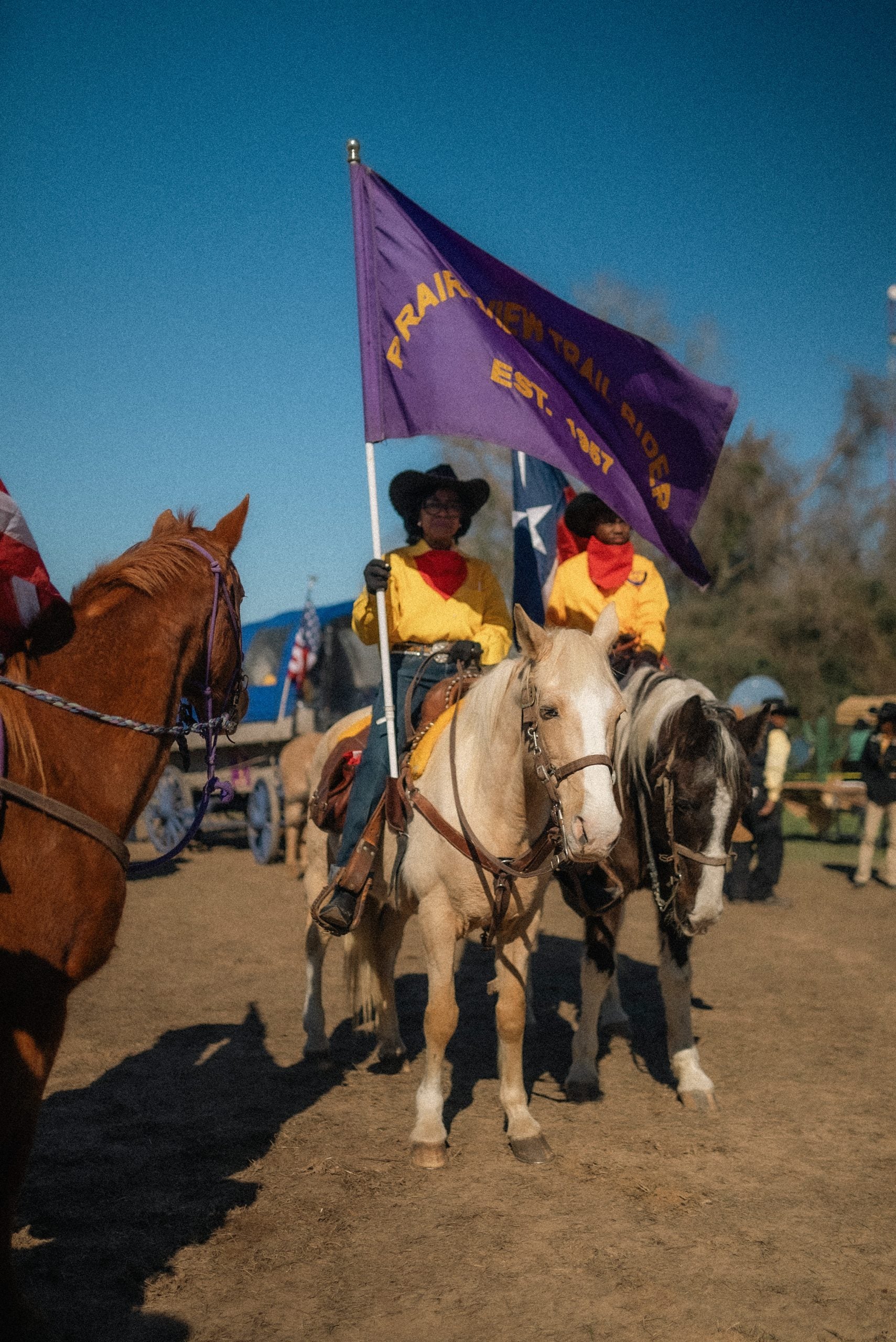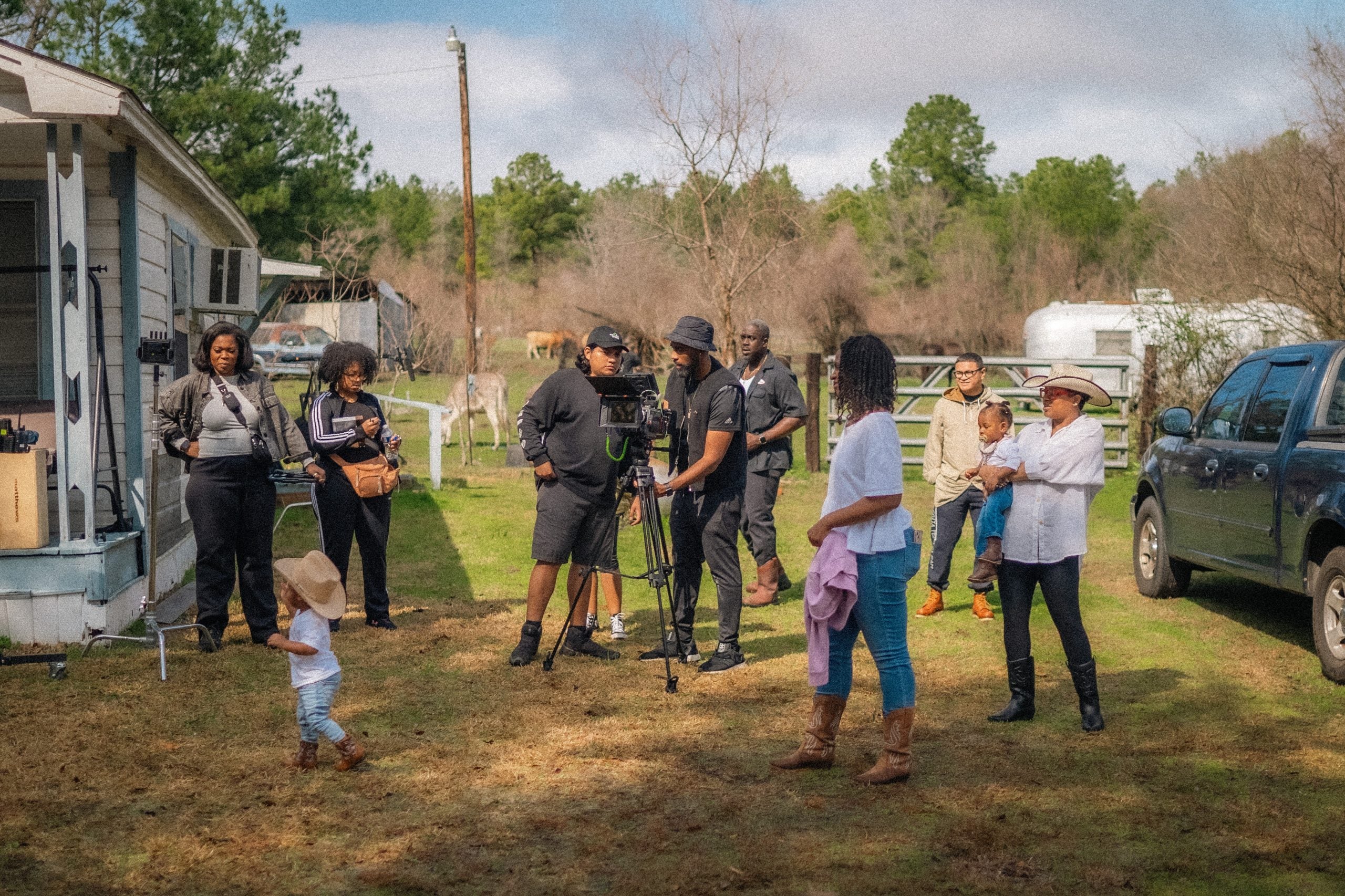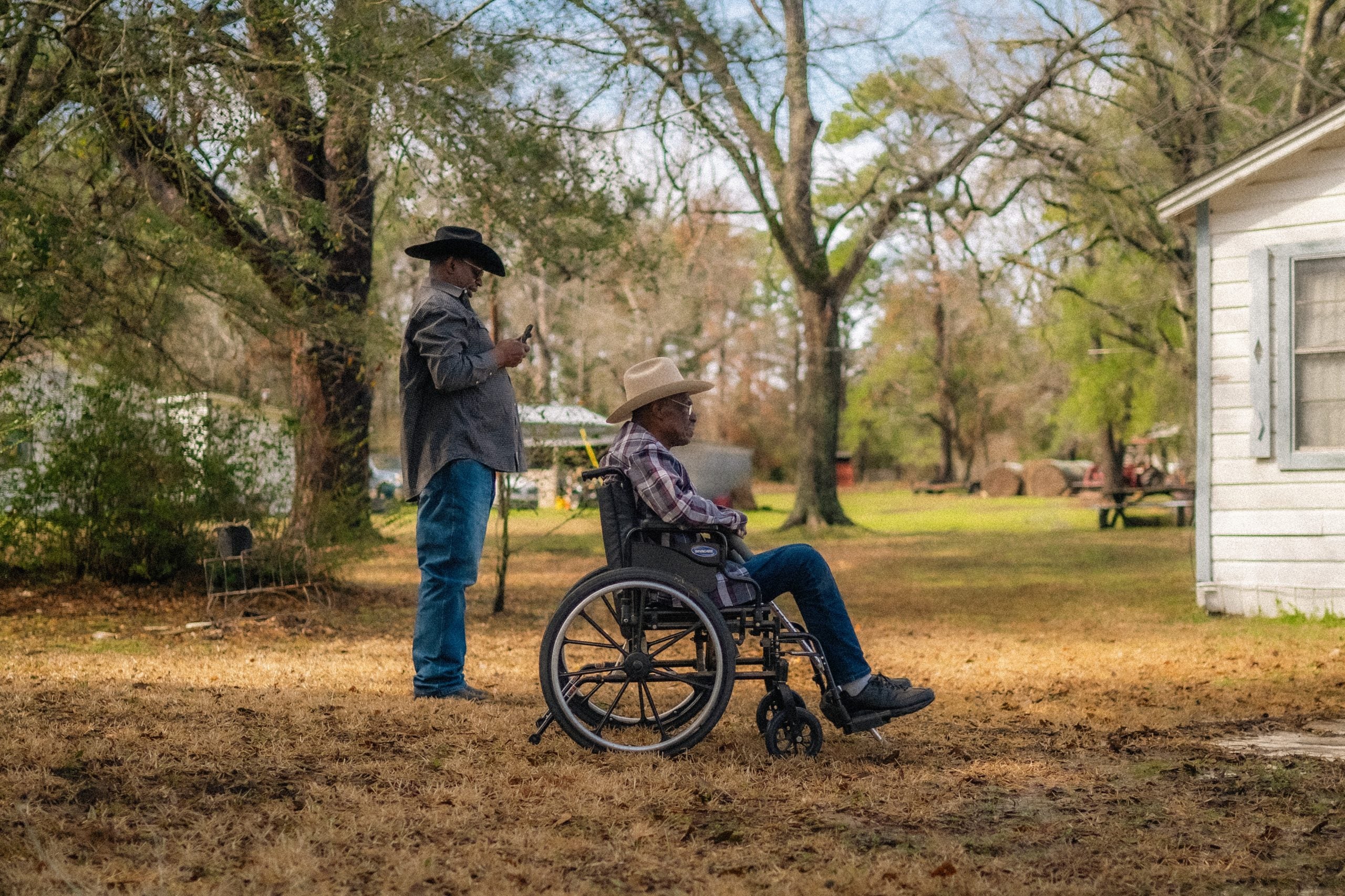EXCLUSIVE: New Short Film Details The Role Of Black Excellence In The Rodeo

Texas proudly boasts the nation’s largest rodeo, the renowned Houston Livestock Show & Rodeo, a stage where the nation’s premier athletes in the field, including skilled bull riders and calf wranglers, showcase their talent. However, within the historical context of Texas rodeos, the significant contributions of Black cowboys and cowhands have often been overshadowed, despite being instrumental in shaping the sport into the cultural phenomenon it is today.
The story begins in Crockett, Texas, a place where the roots of Black cowboy culture run deep, intertwining with the very fabric of rodeo history. It was here that Myrtis Dightman Sr., hailed as the “Jackie Robinson of Rodeo,” becoming the first Black cowboy to qualify for the National Finals Rodeo.

While RodeoHouston had its origins dating back to 1932, trail rides remained largely segregated until the likes of Dightman and his compatriots forged their own paths. Rides & Hides: Honoring Black Excellence Filmmaker Isaac Yowman, a native of Houston and founder of IYO Visuals, encountered firsthand the authentic narratives surrounding Black cowboys, shedding light on previously obscured truths. “The trail rides are what actually kicked off the Houston Livestock Show and Rodeo, and every year they would meet at Memorial Park,” he explains. “It’s essentially a big block party and people come from all over the state of Texas. The Prairie View Trail Ride, however, they’re riding 87 miles on horses and carriages and wagons, and I don’t think a lot of people know that about rodeo culture.”
Reflecting on Dightman’s journey, Yowman recalls a poignant exchange. “When Myrtis Dightman Sr. rode the first bull in 1966, I asked him if he thought he was making history. He replied, ‘Nah. If I want to do something, I’ll just do it.’” Dightman’s determination challenged the skepticism of his peers, echoing a sentiment captured in his simple yet profound response: “Have you tried it?”
Yowman says, “I felt like that was so simple. Such a simplistic statement, but so prolific at the same time. When I think about anything in life, there will be people that may see your ambitions as unrealistic. There may be people around you who don’t have the foresight to reach your goals, and it’s uncharted territory, but if they question the feasibility, you have to ask them, have you tried it?”
Decades later, Dightman’s legacy thrives, not confined to history books but embodied by his descendants. Adia Dightman and her family continue to carry the torch, ensuring that the flame of cultural trailblazing burns brightly. Their story serves as the focal point of Yowman’s short film, a collaborative effort with Adidas and Jennifer Ford of Premium Goods.

Yowman and his team traveled to Crockett, Texas, where the Dightman’s property is sprawled across a healthy 150-plus acres. The multigenerational family has everyone from the smallest babies to elders involved in the trail rides, as a part of their historic heritage. “As a director, this project was actually really intriguing, because as a kid when I grew up, I didn’t get a chance to spend time with my grandparents on either my mom or my dad’s side of the family. It was really amazing to me to be able to see five generations of a family all together at once. The youngest Dightman was one and the oldest was Myrtis Dightman Sr., and he’s 88 or 89,” Yowman reflects.
As the Dightman legacy endures, so too does their impact on rodeo culture. Myrtis Dightman Jr., known as the ‘Trail Boss,’ leads the PV Trail Riders Association, a testament to the family’s enduring commitment to their heritage. “There’s a lot of legacy in their story,” Yowman explains. “They call him [Junior] the ‘Trail Boss,’ and so just to see him carrying his dad’s legacy on, that’s extremely admirable.” Founded by Dightman Sr., Dr. Alfred N. Pointdexter, and James Francis, the PV Trail Riders, has proudly participated in the annual Houston Rodeo trail ride for 70 years.

Another remarkable aspect of the Dightman family’s legacy is their pioneering efforts not only to integrate trail rides but also to embrace women—a groundbreaking move during the early sixties when such practices were virtually unheard of. “Women’s empowerment wasn’t a thought at that time. For them to integrate women into their rides was bold. I actually got to meet a woman, Miss Fuller; who is in the film, she’s been riding with Dightman for decades. That was really dope to see that they embrace women in rodeo culture,” says Yowman.
As pop culture increasingly embraces country music in mainstream circles, there’s a timely opportunity to spotlight the role of women in both the rodeo and country music spheres. This cultural shift resonates with the recent announcement by Beyoncé Knowles-Carter of her forthcoming country album, aptly titled Cowboy Carter.
“As a Texan, you grow up in this. You better believe that Beyoncé got her drip from the folks who embraced the cow girl culture before her like the women from the Prairie View Trail Rides,” Yowman quips. “She said it in the song, “Formation,” ‘Mama Louisiana.’ That Louisiana, that Texas, that cajun, that country, that zydeco, we grow up on that as Texans. Whether you’re extremely engulfed in the culture or not, you already are – the rodeo is a big thing. I think Black women showing up in country, rodeo culture is so important for people to see.”
In the makings of the short film, creatively, Yowman wanted to get viewers to understand the ways in which Black people, specifically Black women, show up. As a culture, we aren’t monolithic,” he emphasizes. Much like Beyoncé’s highly-anticipated album, Rides & Hides: Honoring Black Excellence serves as a poignant reclaiming of a culture that has always been inherently ours, despite historical oversight or lack of acknowledgment.
The film serves as a powerful assertion of Black agency and cultural ownership. It is a reminder that despite historical challenges and systemic barriers, Black rodeo culture thrives and perseveres. It is a declaration that Black culture belongs to us and deserves to be celebrated, acknowledged, and respected.
Source link : www.essence.com
























































